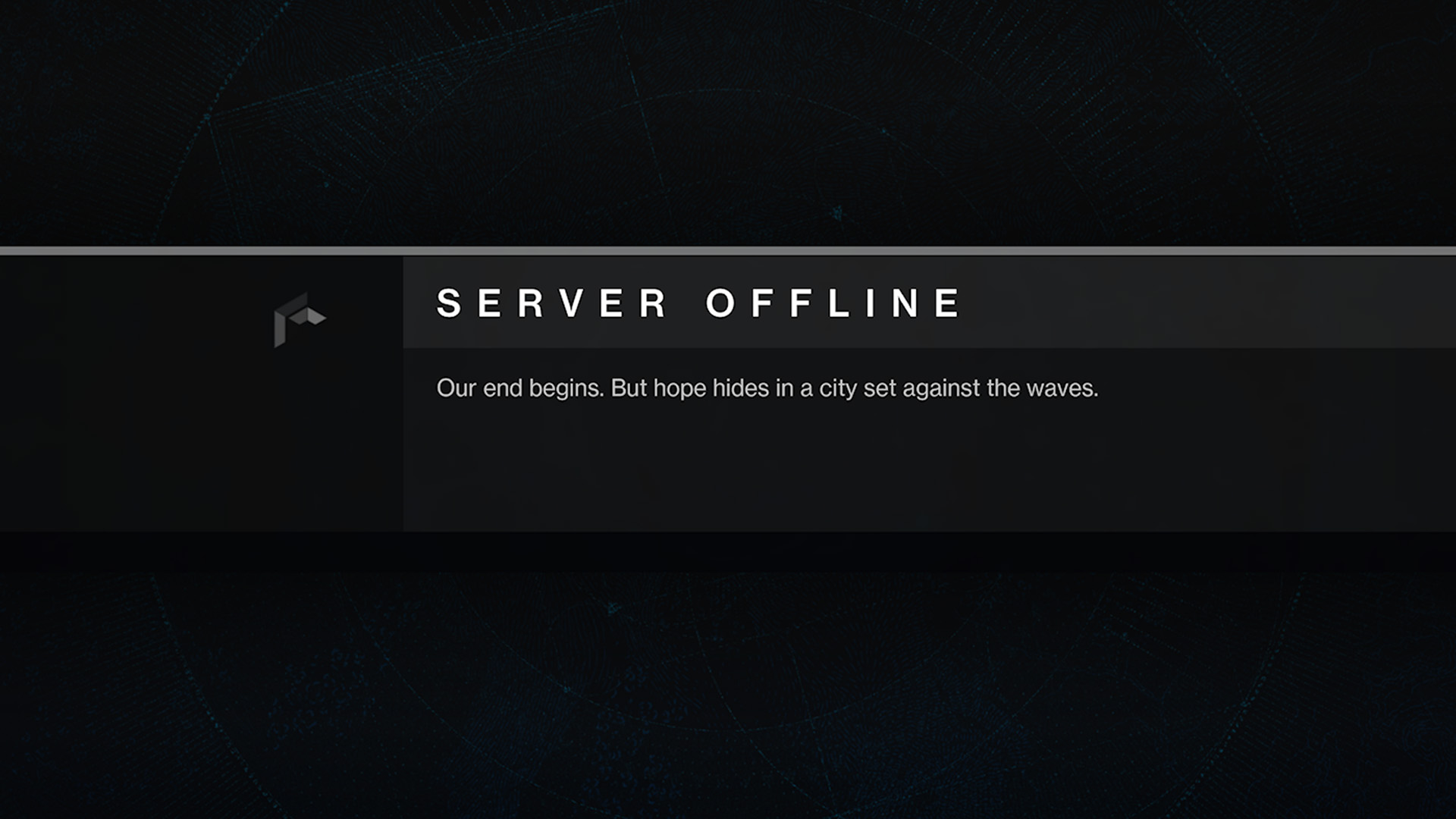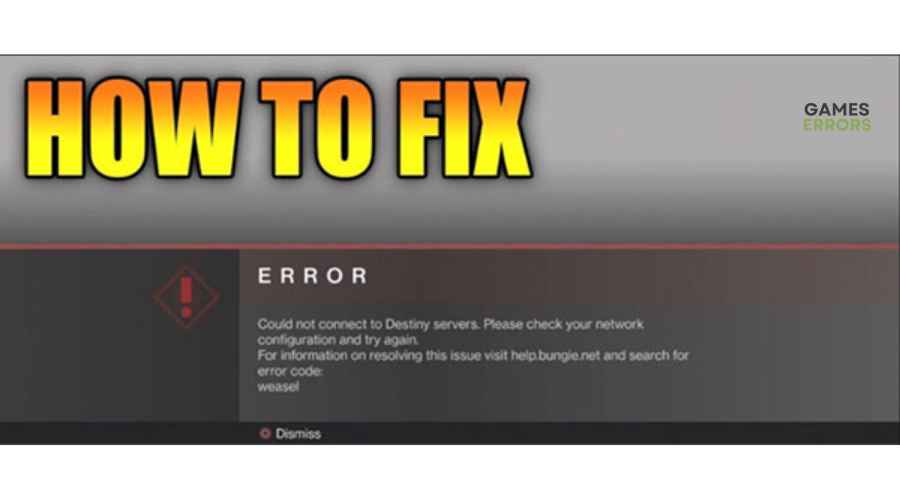Destiny 2 Servers are more than just a technical backbone for your favorite game—they're the heart of the online experience. Imagine jumping into a massive multiplayer universe where every shot, every movement, and every mission relies on these servers. It’s like the invisible strings that keep everything running smoothly—or at least, they’re supposed to. But what happens when things go wrong? How do you troubleshoot, optimize, or even understand the magic behind Destiny 2’s servers? Let’s dive deep into the world of gaming infrastructure and uncover the secrets that power your adventures in the Destiny universe.
Gaming today is not just about having a good graphics card or a fast internet connection. It's about the seamless interaction between you, the game, and the servers that hold everything together. Destiny 2, being one of the most popular online games, relies heavily on its servers to deliver an immersive experience. But let’s be real—sometimes they lag, sometimes they crash, and sometimes they just feel like they're out to get you. That’s why understanding how Destiny 2 servers work is crucial for every player who wants to stay ahead of the game.
In this article, we’ll explore everything you need to know about Destiny 2 servers, from the basics to the advanced troubleshooting tips. Whether you’re a casual player or a hardcore gamer looking to optimize your experience, this guide will give you the tools you need to keep your game running smoothly. So, grab your coffee, sit back, and let’s get started!
Read also:Glenn Tatum The Man Who Transformed Marketing With His Unique Approach
Understanding Destiny 2 Servers
Before we dive into the nitty-gritty, let’s talk about what Destiny 2 servers actually are. At their core, they’re basically powerful computers that store all the game data and manage player interactions. Think of them as the brain of the Destiny universe. Every time you log in, fire a weapon, or complete a mission, you’re interacting with these servers. They’re what make multiplayer gaming possible, and without them, Destiny 2 would just be a pretty static world.
But here’s the kicker—these servers aren’t perfect. They can experience downtime, lag, and other issues that can ruin your gaming session. That’s why understanding how they work is the first step toward troubleshooting and improving your experience. By the end of this section, you’ll have a solid grasp of what makes Destiny 2 servers tick and how they impact your gameplay.
Why Are Destiny 2 Servers Important?
Destiny 2 servers are the backbone of the game’s online ecosystem. They’re responsible for everything from matchmaking to storing your character’s progress. Without them, you wouldn’t be able to play with friends, join raids, or participate in events. In short, they’re the reason you can enjoy Destiny 2 as a multiplayer experience.
Here’s a quick breakdown of why Destiny 2 servers are so crucial:
- They store all your character data, including gear, stats, and progress.
- They manage multiplayer interactions, ensuring everyone is on the same page.
- They handle updates, patches, and new content releases.
- They provide a stable environment for millions of players to enjoy the game.
So, the next time you’re grinding for that legendary weapon or completing a raid with your fireteam, remember that it’s all possible thanks to these powerful servers.
How Destiny 2 Servers Work
Now that we know why Destiny 2 servers are important, let’s talk about how they actually work. The process starts when you log into the game. Your computer or console sends a request to the servers, which then authenticate your account and load your character data. From there, the servers manage everything that happens in the game world, from enemy spawns to player movements.
Read also:Friend Passed Away Quotes Finding Comfort In Words
But how do they do it? Destiny 2 servers use a combination of technologies to ensure smooth gameplay. They employ load balancing to distribute the workload across multiple servers, ensuring that no single server gets overwhelmed. They also use caching to store frequently accessed data, reducing the time it takes to load certain elements. And let’s not forget about the constant monitoring and maintenance that keeps everything running smoothly.
Server Types in Destiny 2
Not all servers are created equal. In Destiny 2, there are different types of servers that handle different aspects of the game. Here’s a quick overview:
- Authentication Servers: These servers handle login requests and verify your account credentials.
- Game Servers: These are the main servers that manage gameplay, including matchmaking, missions, and raids.
- Data Servers: These servers store all your character data, including gear, stats, and progress.
- Update Servers: These servers handle game updates, patches, and new content releases.
Each type of server plays a vital role in ensuring a smooth and enjoyable gaming experience. Understanding how they work together can help you troubleshoot issues and optimize your gameplay.
Common Issues with Destiny 2 Servers
Even the best servers can experience issues from time to time. Whether it’s downtime, lag, or connection problems, these issues can be frustrating for players. Let’s take a look at some of the most common problems and how to deal with them.
Downtime: Sometimes, Destiny 2 servers go down for maintenance or due to technical issues. This can leave players unable to access the game for hours or even days. The best way to deal with downtime is to check Bungie’s official social media channels or forums for updates.
Lag: Lag can ruin your gaming experience by causing delays in movement, shooting, and other actions. It’s usually caused by a poor internet connection or overloaded servers. To reduce lag, try restarting your router, closing unnecessary programs, or switching to a wired connection.
Connection Problems: Connection issues can manifest as disconnections, dropped frames, or slow load times. These are often caused by network congestion or server overload. To fix them, try resetting your network equipment or switching to a different server region if possible.
Troubleshooting Destiny 2 Servers
If you’re experiencing issues with Destiny 2 servers, don’t panic. There are several steps you can take to troubleshoot and resolve the problem:
- Check Bungie’s official status page for any known issues.
- Restart your router and gaming device.
- Clear your cache and update your game to the latest version.
- Try switching to a wired connection if you’re using Wi-Fi.
- Check your internet speed and ensure it meets the game’s requirements.
By following these steps, you can often resolve server-related issues and get back to enjoying your favorite game.
Optimizing Your Destiny 2 Server Experience
Now that we’ve covered the basics, let’s talk about how you can optimize your Destiny 2 server experience. Whether you’re a casual player or a hardcore gamer, there are several things you can do to ensure a smooth and enjoyable gameplay experience.
Upgrade Your Hardware: Make sure your computer or console meets the game’s system requirements. If you’re experiencing lag or other issues, consider upgrading your hardware, especially your graphics card and RAM.
Improve Your Internet Connection: A stable and fast internet connection is crucial for online gaming. Consider upgrading to a higher-speed plan or switching to a wired connection if you’re currently using Wi-Fi.
Join the Right Server Region: If you’re experiencing connection issues, try switching to a server region closer to your location. This can reduce latency and improve your gameplay experience.
Advanced Tips for Hardcore Gamers
For those looking to take their Destiny 2 experience to the next level, here are some advanced tips:
- Use a gaming VPN to reduce latency and improve connection stability.
- Monitor your system performance using tools like Task Manager or third-party software.
- Stay up-to-date with the latest patches and updates from Bungie.
- Participate in community forums and discussions to stay informed about server issues and solutions.
By following these advanced tips, you can ensure the best possible experience when playing Destiny 2.
Destiny 2 Server Maintenance
Like any complex system, Destiny 2 servers require regular maintenance to keep them running smoothly. Bungie schedules regular maintenance windows to perform updates, fix bugs, and improve performance. During these maintenance periods, players may experience downtime or restricted access to certain features.
Here’s what you need to know about Destiny 2 server maintenance:
- Maintenance is usually scheduled during off-peak hours to minimize disruption.
- Bungie provides advance notice of maintenance periods through their official channels.
- During maintenance, you may not be able to access the game or certain features.
- After maintenance, you may need to update the game to access the latest content.
By staying informed about maintenance schedules and updates, you can plan your gaming sessions accordingly and avoid frustration.
What Happens During Maintenance?
During maintenance, Bungie’s engineers work behind the scenes to improve the game’s infrastructure. They perform tasks like updating server software, fixing bugs, and optimizing performance. This ensures that players have the best possible experience when the servers come back online.
While maintenance can be inconvenient, it’s an essential part of keeping Destiny 2 running smoothly. By understanding what happens during maintenance, you can appreciate the effort that goes into maintaining such a massive online game.
Destiny 2 Server Security
With millions of players accessing Destiny 2 servers every day, security is a top priority for Bungie. They employ a range of measures to protect player data and ensure a safe gaming environment. These include encryption, firewalls, and constant monitoring for suspicious activity.
Here’s how Bungie keeps your data safe:
- All communication between your device and the servers is encrypted to prevent hacking.
- Firewalls and intrusion detection systems protect against unauthorized access.
- Constant monitoring helps identify and respond to potential threats in real-time.
- Regular security audits ensure that all systems are up-to-date and compliant with industry standards.
By prioritizing security, Bungie ensures that players can enjoy Destiny 2 without worrying about their data being compromised.
Player Responsibility in Security
While Bungie does its part to secure Destiny 2 servers, players also have a role to play in protecting their accounts. Here are some tips for keeping your account safe:
- Use a strong, unique password and enable two-factor authentication.
- Avoid sharing your account information with others.
- Be cautious when clicking on links or downloading files from unknown sources.
- Report any suspicious activity to Bungie immediately.
By following these simple steps, you can help ensure the security of your Destiny 2 account and enjoy a safe gaming experience.
The Future of Destiny 2 Servers
As technology continues to evolve, so too will Destiny 2 servers. Bungie is constantly exploring new ways to improve the game’s infrastructure, from implementing cloud-based solutions to leveraging AI for better performance and security. These advancements will ensure that Destiny 2 remains one of the most popular online games for years to come.
Here’s a glimpse into the future of Destiny 2 servers:
- Cloud-based servers could reduce latency and improve scalability.
- AI-driven optimization could enhance performance and reduce downtime.
- Enhanced security measures could further protect player data.
- New technologies could enable even more immersive gameplay experiences.
By staying ahead of the curve, Bungie can ensure that Destiny 2 continues to deliver an unparalleled gaming experience for its millions of players.
Conclusion
Destiny 2 servers are the backbone of the game’s online ecosystem, powering everything from matchmaking to character progression. Understanding how they work, troubleshooting common issues, and optimizing your experience can help you get the most out of your gaming sessions. Whether you’re a casual player or a hardcore gamer, knowing the ins and outs of Destiny 2 servers is essential for enjoying the game to its fullest.
So, the next time you log into Destiny 2, take a moment to appreciate the complex infrastructure that makes it all possible. And if you ever encounter issues, don’t hesitate to reach out to Bungie’s support team or consult their official channels for updates and solutions. Happy gaming!
Table of Contents


